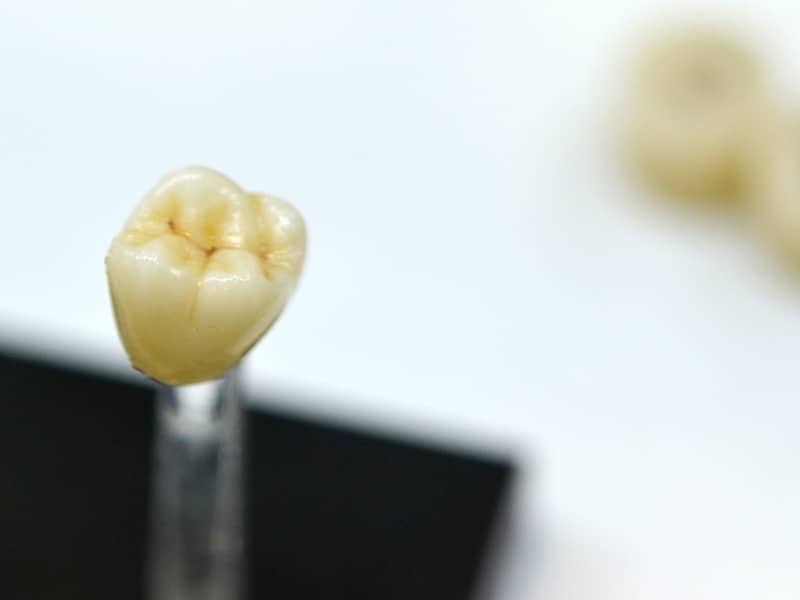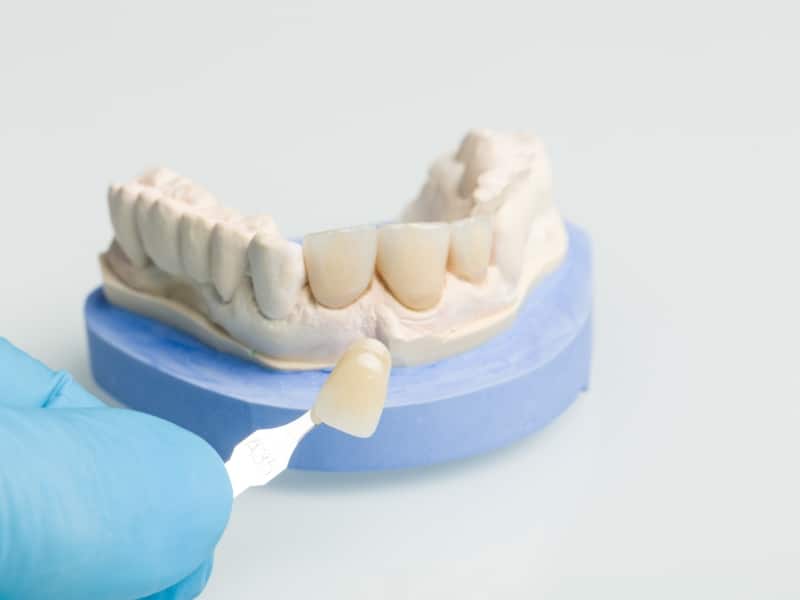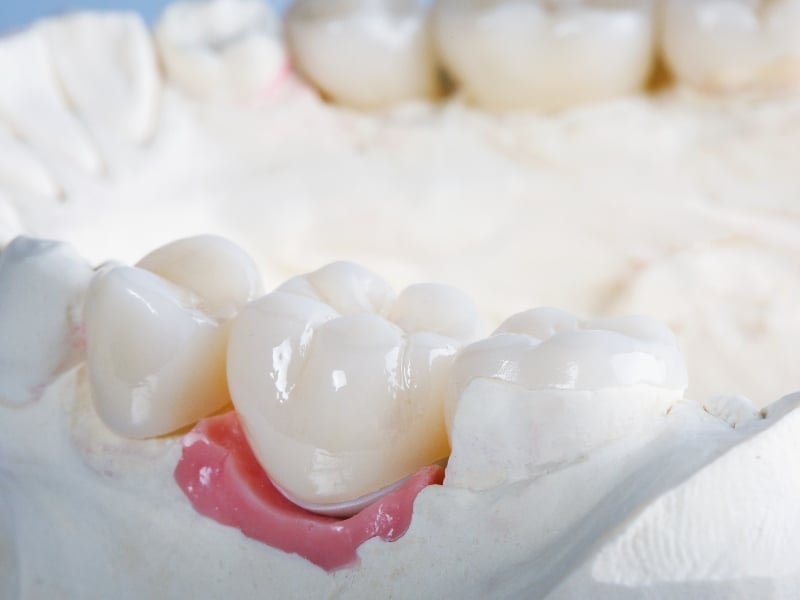A loose dental crown might seem small, especially if it’s not causing pain or discomfort. However, ignoring it can lead to serious dental problems, from infections to irreversible damage to the underlying tooth. This article explains why addressing a loose crown early can save you pain, money, and time at the dentist. Whether it’s happened suddenly or has been bothering you for a while, you’ll understand why this issue deserves immediate attention.
What is a loose dental crown?
A dental crown protects a damaged or decayed tooth by acting as a cap over it. Over time, however, it can become loose due to wear and tear, poor adhesive bonding, or other dental concerns. When it loosens, it exposes the underlying tooth, making it vulnerable.
- Tooth decay under the crown: Bacteria can get beneath the crown if the seal breaks.
- Cement breakdown: Over time, the dental cement holding the crown in place may wear away.
- Tooth grinding or clenching puts pressure on crowns, causing them to shift.
- Injury or trauma: A sudden impact can loosen the crown.
- Chewing hard or sticky foods can pull at or crack the crown’s seal.
A loose crown means the protective cap on your tooth is no longer secured. Causes vary, but ignoring it allows damage and bacteria to sneak in unnoticed.
How can a loose dental crown affect your oral health?
You might not notice any pain initially, but a loose crown can quietly undermine your oral health. This can have a broader impact, as poor oral health affects overall well-being. The crown’s job is to protect the vulnerable tooth underneath; even a slight shift can compromise that protection. Oral health risks include:
- Exposure to bacteria: This can lead to decay under the crown.
- Gum irritation and inflammation: A shifting crown can cause redness, swelling, or bleeding.
- Bad breath or unpleasant taste: Often caused by trapped food or decay beneath the crown.
- Loose fit may affect nearby teeth: Misalignment can throw off your bite.
- Sensitivity to hot or cold: The exposed tooth becomes sensitive without its proper covering.

A loose dental crown compromises your tooth’s protection, exposing you to decay, gum issues, and increased sensitivity. Acting early avoids these complications.
What risks come with a loose dental crown?
Leaving a loose crown unchecked doesn’t just threaten your dental health. It can trigger a domino effect of issues that become costlier and more painful over time. Major risks include:
- Crown falling off entirely: Exposes the tooth to further damage.
- Decay and infection: Leads to root canal treatment or extraction if ignored.
- Pain and discomfort: Especially when eating or brushing.
- Damage to the underlying tooth can make it unfit for a replacement crown.
- Increased dental costs: Delay can mean more complex and expensive procedures later.
Ignoring a loose dental crown can quickly escalate into more serious (and expensive) problems. It’s best to address the issue before it spirals.
Can ignoring a loose crown lead to tooth damage?
Yes, and the damage can be permanent. A loose crown no longer fits snugly over the tooth, which opens the door to a range of issues that can weaken the tooth beyond repair.
| Cause | Potential Damage |
| Bacterial exposure | Tooth decay, cavities under the crown |
| Ongoing pressure on the weak tooth | Cracks, fractures, or complete breakage |
| Loss of crown fit | Makes future crown replacement difficult |
| Grinding without protection | Erodes tooth structure |
| Inflammation from food debris | Damages the gum and tooth root |
Once the crown loosens, your tooth is vulnerable to irreversible damage. Preventative measures to avoid dental crown cracking are essential, and seeking immediate dental care can help preserve the tooth’s health and function.
Who is most at risk of having loose dental crowns?
Anyone with a dental crown can experience issues. Still, certain factors make some people more likely to deal with this problem. Knowing if you’re in a higher-risk group can help you avoid potential issues. At-risk groups include:
- People with poor oral hygiene: This increases the risk of decay around the crown.
- Chronic teeth grinders: Put constant pressure on dental work.
- Older adults: Crowns may become loose over time due to wear and gum recession.
- People with gum disease: Weakens the foundation around the tooth.
- Those with multiple crowns and more dental work have more chances for issues.
Regular dental checkups are essential if you belong to one of these groups. Catching a loose crown early can help you avoid the potential risks of a loose or fallen crown, like infection or damage to the tooth underneath.
What signs show your dental crown needs urgent care?
Some signs of a loose crown are obvious, but others can be subtle. Attention to your mouth’s signals is key to catching the issue early. Watch for these signs:
- Wobbling or movement: A crown should feel solid and stable.
- Pain when chewing: Could mean the crown is shifting or exposing nerves.
- Unusual taste or bad breath: May signal decay or trapped food under the crown.
- Temperature sensitivity: A loose crown may no longer insulate the tooth properly.
- Visible gaps or misalignment: If your bite feels off, it might be due to a loose crown.

If your crown feels different, don’t ignore it. These symptoms are your body’s way of telling you something’s wrong.
Are there risks in delaying tooth crown repairs?
Putting off crown repairs might seem harmless if you’re not in pain. But the longer you wait, the higher the risk of a simple fix becoming a complex problem. Delaying crown repair can lead to:
- Higher treatment costs: What could’ve been a quick adjustment might become a root canal or extraction.
- Loss of the original tooth: If decay sets in, the tooth may become too damaged to save.
- Damage to surrounding teeth: A poorly fitting crown can throw off your bite and affect nearby teeth.
- Reduced effectiveness of future crowns: A weakened tooth may not hold another crown properly.
Delaying a crown repair is like putting off a small leak. It only gets worse. Prompt care saves you money and stress.
What should you do if your crown feels off?
If your dental crown is loose or shifting, acting quickly is essential. Finding a reliable dental crown solution can help prevent further damage and avoid more invasive procedures. Taking early action is key to keeping your smile healthy. Steps to take immediately:
- Stop chewing on that side: Reduce pressure on the crown.
- Avoid sticky or hard foods: These can pull or worsen the looseness.
- Clean the area: Rinse gently with warm salt water and brush carefully.
- Check for movement: Don’t pull or wiggle it; note if it feels different.
- Book a dental appointment immediately: Only a dentist can assess and adequately fix the issue.
Trust your instincts. If something feels off, act early. Your dentist can address it before it becomes a bigger problem.
Conclusion:
Dental crowns play a significant role in protecting your teeth and restoring function. A loose crown might seem minor, but it can quickly snowball into something more serious if ignored. From decay and infection to permanent tooth damage, the risks are too significant to leave it to chance.
Wondering if your crown issue could worsen? Talk to the team at Marsfield Dental Care.

